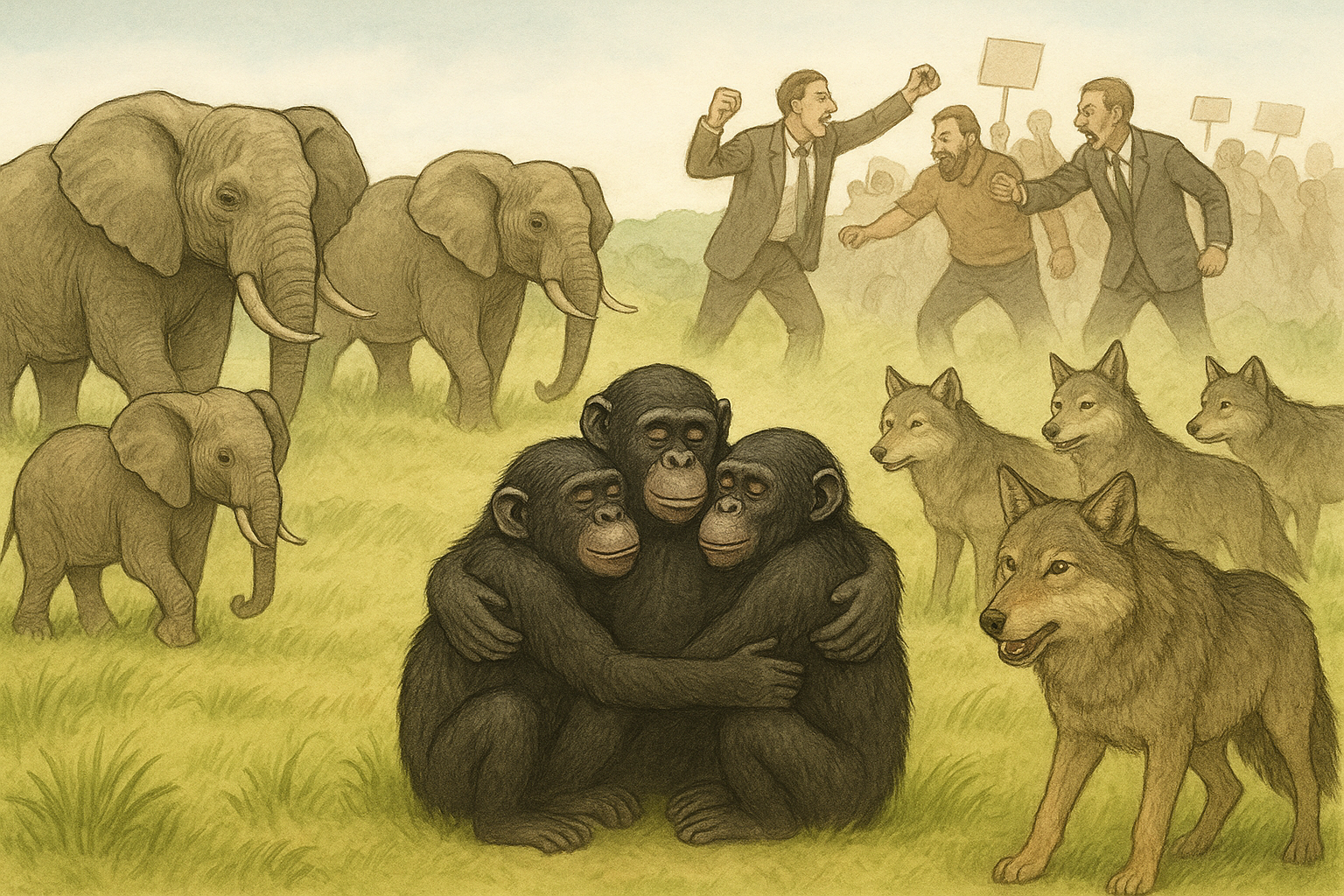Humans vs. Animals

We like to think of ourselves as a civilized species. We have human rights, peace agreements, and inspiring TED talks promoting tolerance. We smile politely at our neighbors, attend 'diversity workshops,' and even send heart emojis to strangers online. Yet, the moment someone posts 'the wrong thing' on Facebook, it’s like flipping a switch, we go into CAPS LOCK mode and unleash a digital storm of rage as if it’s a competitive sport.
Now, let’s look at animals. They don’t have human rights charters, a Ministry of Tolerance, or a 'We Love Diversity' festival. Still, they often seem to grasp the concept of tolerance better than we do.
In the animal kingdom, tolerance is more about survival than morality. Take elephants, for instance; they wait for their slowest member when migrating. No one gets 'unfollowed' for not keeping pace. Bonobos, on the other hand, handle conflict with, let’s say, a lot of physical affection. No endless meetings, just... problem solved!
Wolves sometimes welcome outsiders into their pack if it boosts their hunting success. There are no ideologies or debates involved, just a simple question: 'Does it help us survive? If yes, then it’s good.'
For us humans, tolerance is a lot more complicated. We can accept something or someone that challenges our own interests, simply because we think it’s 'the right thing to do.' That sounds great in theory. We create laws, hold conferences, and pen books about respect and diversity.
But at the same time, we fight wars over religion, politics, or even the great pineapple-on-pizza debate (which, by the way, calls for some tolerance, folks). The irony? Our biggest strength, our ability to think and reason morally is often our greatest weakness.

Comments